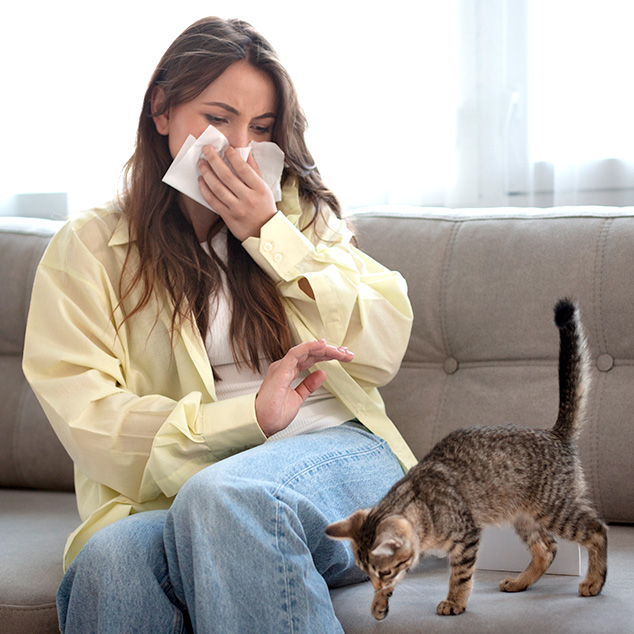
How Can a Healthcare Provider Help Me With My Allergies?
A healthcare provider can play a crucial role in managing allergies, providing both immediate relief and long-term strategies. They can begin by taking a comprehensive medical history and conducting tests to identify specific allergens causing your symptoms. Based on this information, they can recommend appropriate treatments, such as antihistamines, nasal sprays, or other medications to alleviate symptoms.
For more severe or persistent cases, they might suggest allergen immunotherapy (allergy shots) or refer you to an allergist for specialized care. Additionally, they can offer practical advice on avoiding allergens, creating a safer home environment, and managing symptoms through lifestyle changes. They can also monitor your condition over time, adjusting treatment plans as needed to ensure optimal control of your allergies. By providing personalized and continuous care, a healthcare provider helps improve your quality of life and minimize the impact of allergies on your daily activities.
Connect NowHow It
Works
Request an Appointment
Visit www.medcareconnect.ca to start the simple and easy process of being put in touch with a healthcare facility and provider.
Connect with a Healthcare Facility & Provider
The MedCare Connect team will put you in touch with a healthcare facility and provider and notify you of your upcoming appointment.
Receive Medical Advice, a Diagnosis and Treatment
The healthcare provider can provide you with a diagnosis, prescription, doctor’s note, specialist referral or order lab work when deemed necessary.
Pricing
Ontario Residents
Free, 100% OHIP covered with a valid Ontario health card.
$50 CAD consultation fee without a valid Ontario health card.
Private Insurance
Direct billing available with our affiliated insurance partners.
All major insurance plans accepted for international students and uninsured individuals.
Coverage and eligibility vary by insurer. Please check your policy for coverage eligibility. For non-affiliated insurance partners, patients are required to pay a $50 CAD consultation fee. A receipt will be issued for you to reimburse to your insurance company for assessment of reimbursement.
Uninsured Services
Certain services are not covered by provincial or private insurance and may incur extra fees at the end of your appointment.
Please note that certain forms and documents may require an in-person assessment at a local healthcare facility and will be filled in at the healthcare provider’s discretion, when medically appropriate.
Frequently Asked Questions
In Ontario, OHIP (Ontario Health Insurance Plan) typically covers consultations with physicians, including family doctors and specialists including allergists, for medically necessary services. This coverage extends to consultations related to various health concerns, including acne treatment, if deemed necessary by the physician.
For patients with an invalid/expired health card or for patients who do not have a health card, there would be a consultation fee.
Yes, we accept all major insurance plans for international students and uninsured individuals. Direct billing is available with our affiliated insurance partners. Coverage and eligibility vary by insurer. Please check your policy for coverage eligibility. For non-affiliated insurance partners, patients are required to pay a consultation fee. A receipt will be issued for you to reimburse to your insurance company for assessment of reimbursement.
Allergy testing is a medical procedure designed to identify specific allergens that trigger allergic reactions in individuals. By determining which substances provoke an immune response, healthcare providers can recommend appropriate management strategies and treatments to alleviate symptoms.
There are several types of allergy tests available, including skin tests (such as skin prick tests and intradermal tests) and blood tests (like specific IgE testing). Skin tests involve exposing the skin to small amounts of allergens, while blood tests measure the levels of immunoglobulin E (IgE) antibodies in the bloodstream that react to allergens.
In a skin prick test, small drops of potential allergens are placed on the skin, usually on the forearm or back. The skin is then gently pricked or scratched to allow the allergens to enter the outer layer. If you are allergic, a localized reaction—such as redness, swelling, or itching—will typically occur within 15 to 20 minutes, indicating a positive response.
Yes, blood tests can be highly accurate for diagnosing allergies. They are especially beneficial for individuals who may have skin conditions that prevent skin testing or for those who are taking medications that could interfere with skin test results. Blood tests measure the amount of specific IgE antibodies in response to various allergens, providing useful diagnostic information.
Yes, preparation may be necessary to ensure accurate results. Patients are often advised to avoid antihistamines, certain antidepressants, and other medications that can affect the immune response for a few days prior to testing. Your healthcare provider will give specific instructions tailored to your situation to optimize the accuracy of the tests.
Allergy testing is generally not painful. Skin prick tests involve minor discomfort similar to a quick pinch, while blood tests require a needle but are typically well-tolerated. Most people experience little to no discomfort, and any sensation is brief.
Yes, both skin and blood tests can help identify food allergies. However, food allergies sometimes require additional testing, such as oral food challenges, to confirm the diagnosis, particularly if the results are inconclusive or if there’s uncertainty about the clinical relevance of the test.
A positive test indicates sensitization to that allergen, meaning your immune system reacts to it. However, it does not necessarily mean you will experience symptoms, as some people may be sensitized without clinical reactivity. Your healthcare provider will discuss management strategies, which may include avoidance measures, medications, or immunotherapy, based on your specific symptoms and lifestyle.
Allergy testing is generally safe, but there are some risks involved, particularly with skin tests. A slight risk of allergic reactions exists, including localized reactions or, in rare cases, systemic reactions. Your healthcare provider will monitor you during the procedure to manage any potential reactions promptly and ensure your safety throughout the testing process.
